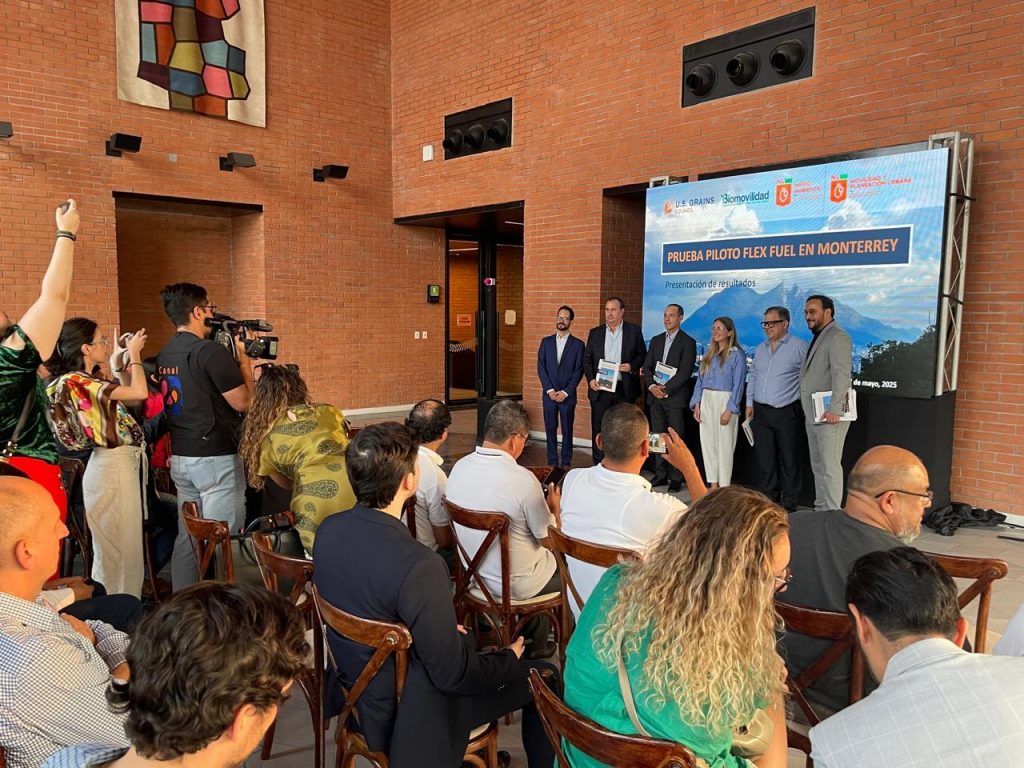During the past six weeks, 10 taxis in Monterrey, Mexico converted to Flex Fuel technology and traveled more than 43,000 miles, using in excess of 1,500 gallons of E85—gasoline blended with 85% bioethanol—cutting operating costs by more than $2 Mexican pesos (MXN) per mile and reducing between 4.9 and 6.4 tons of carbon dioxide equivalent emissions annually per taxi.
Projected savings per vehicle over its lifespan reached up to $19,230 MXN, with environmental benefits including a significant reduction in air pollutants, according to data from the E85 Pilot Project, a study conducted under a Memorandum of Understanding (MOU) between the Nuevo León State Ministry of the Environment and the U.S. Grains Council (USGC).
“This program showcased the benefits of biofuels for transportation and how they can be a solution for Mexico to reduce polluting emissions,” said Heidi Bringenberg, USGC director in Mexico. “The clear financial and environmental benefits laid out through the trial prove ethanol’s viability and availability in Mexico and beyond.”
Analyses conducted by the Mexican Petroleum Institute (IMP) reinforced the Pilot Project’s results, indicating that E85 use in Tier 1 Flex Fuel vehicles reduces key emissions including carbon monoxide, nitrogen oxides, particulates and toxic compounds including benzene and 1,3-butadiene. These reductions far outweigh the recorded increases in methane, formaldehyde and acetaldehyde.
At the state level, estimates show that with just five percent adoption of E85 in the vehicle fleet, Nuevo León could mitigate 148,000 tons of carbon dioxide annually and generate savings of up to $375 million MXN. E85 is not only a viable alternative fuel but it also is a catalyst for developing a new national agroindustry based on sugarcane and sorghum for bioethanol production.
“I’m eager to see the Mexican energy and transportation sectors react to this study and how it will spur investments in a new agroindustry in the country,” Bringenberg said. “With U.S. agriculture already enjoying a close relationship with Mexico, its top export market, any increase in biofuel consumption translates to significant demand for U.S. producers to meet.”
Learn more about the Council’s work in Mexico here.
About The U.S. Grains Council
The U.S. Grains Council develops export markets for U.S. barley, corn, sorghum and related products including distiller’s dried grains with solubles (DDGS) and ethanol. With full-time presence in 28 locations, the Council operates programs in more than 50 countries and the European Union. The Council believes exports are vital to global economic development and to U.S. agriculture’s profitability. Detailed information about the Council and its programs is online at www.grains.org.

